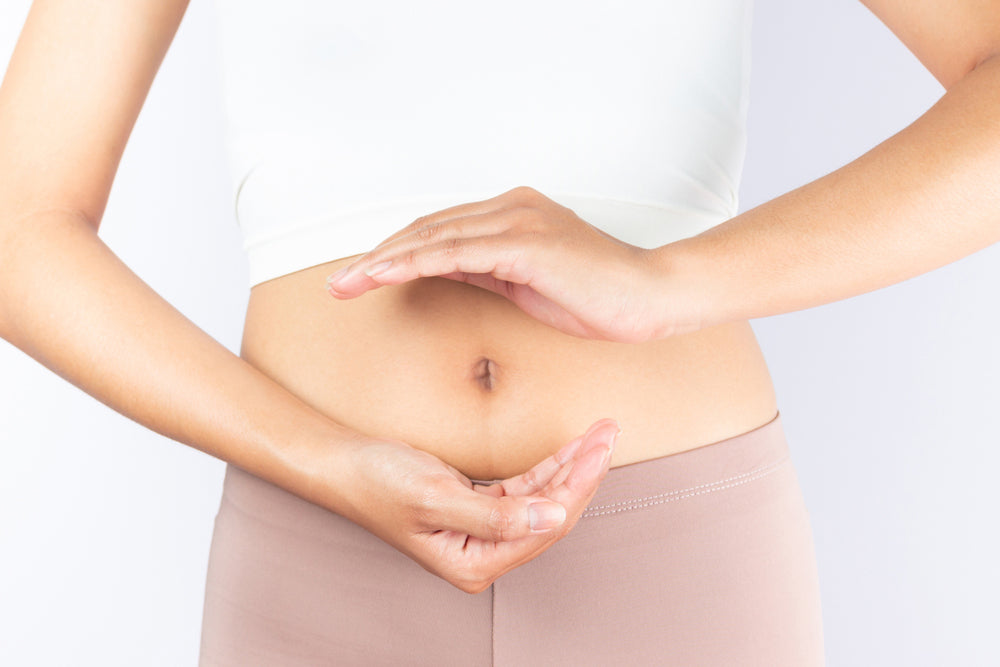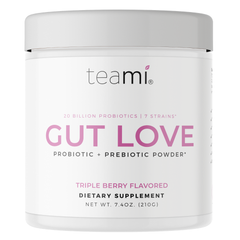What Is the Gut Microbiome? How to Support the “Forgotten Organ”

Remember learning about cells in your first science class? You probably drew a picture and labeled the parts. Imagine that illustration and think about this: the average human body contains 30-40 trillion cells!
What’s even more impressive than that is the microorganisms (or microbes) in your body outnumber those trillions of cells. According to the National Institutes of Health, microbes make up between two and six pounds of your body’s mass. And in the gut, these microbes are referred to as the “gut microbiome.” Maintaining a healthy gut microbiome is essential to good health, but what exactly does it do?
What is the gut microbiome?
Think of a typical day in a big city. Imagine the streets of New York City bustling with people darting in and out of buildings. Take that visual, shrink it down, and imagine the microorganisms (also known as the microbiota) in your gut moving around your intestines all day. This is the microbiome. All of these microbes work together in your intestines to keep your body balanced. They communicate with other systems in the body and carry out many activities.
Some researchers even refer to the microbiome as the “forgotten organ.” Interestingly, your microbiome is totally unique to you and is determined by many factors early in life. This includes what you were fed and even how you were delivered as a baby! Pretty crazy, right? That doesn’t mean what you do now doesn’t impact your microbiome. The foods you eat and other lifestyle factors play a role in maintaining microbiome balance. It is an ecosystem, and what you put into your body is the “weather” that impacts it.
What does the gut microbiome do?
Your gut microbiome has several important jobs. Different types of bacteria are needed to complete specific functions. Here are five important jobs your gut microbiome performs daily:
- Digests food – Some bacteria in the gut microbiome are essential for breaking down starches, fiber, and other nutrients. We wouldn’t be able to digest foods properly without the gut microbiome!
- Synthesizes vitamins – One study found that the gut microbiome synthesizes up to half of your daily Vitamin K requirements. The gut also synthesizes other nutrients, including biotin (which supports hair, skin, and nail health), and folate.
- Supports gut health – Bacteria in the microbiome are necessary to keep digestion smooth and normal. When bacteria are unbalanced, it may cause digestive upset.
- Supports mental health – A study out of the California Institute of Technology revealed that an estimated 90% of serotonin is made in the digestive tract! Serotonin helps manage mood and plays a large role in cognitive function. That means your gut microbiome actually influences how you respond to stress, and it may even impact memory performance.
- Supports the skin microbiome – Your skin has its own microbiome. However, it relies on the gut microbiome for support. Several studies have shown skin improvement when supplementing with probiotic bacteria, including an improvement in skin barrier function.
- Supports the immune system – It has been estimated that 70% of the immune system lives in the gastrointestinal tract. Your body is naturally exposed to many organisms throughout the day. The microbes in your gut train the immune system if these organisms are friendly or need to to go away. This is also how the immune system knows that the bacteria in your gut are friendly!
How to support the gut microbiome
Improving and supporting your gut microbiome is like improving any other aspect of your health. Eating a variety of foods that contain vitamins, minerals, and fiber is essential to balancing good bacteria. This especially includes foods that contain prebiotics and probiotics. Drinking water is also essential, as it helps promote healthy digestion and makes it easier for the gut microbiome to break down nutrients.
To add more probiotic foods to your diet, fermented foods are one of the best sources of beneficial enzymes and bacteria. Kombucha, sauerkraut, kimchi, miso, tempeh, and yogurt are foods that are high in probiotics. These can help restore bacterial balance, especially when balance is disrupted from stress, changes to your diet, medications, or even age.
Eating foods that contain prebiotics is another way to support the gut microbiome. Prebiotics are foods that help stimulate the growth of good bacteria. Prebiotic foods contain inulin fiber. Inulin fiber produces short-chain fatty acids that are ultimately used for energy.
Support your gut microbiome with Gut Love!
One of the easiest ways to support bacterial balance is with a nutritional supplement. Or as we like to say, give your microbiome some Gut Love! Gut Love is a combination prebiotic and probiotic powder that contains seven different strains and 20 billion probiotics. It can be blended with your favorite smoothie or even dissolved in water! Plus, it’s available in two flavors: Unflavored and Triple Berry.
To get the most out of Gut Love, it is recommended to use it just before a meal (making it even more convenient in a smoothie!) However, you can use it at any time of the day when it is convenient for you.
Understanding your gut microbiome and what it does can help you take even more control over your health. Nourishing your gut with plenty of water, the right foods, and probiotics can help you love your gut and keep it balanced.

Love,
Adi Arezzini | @adiarezzini
Co-Founder + CEO, Teami Blends
Certified Holistic Nutrition Coach
Subscribe to our Newsletter
Subscribe to our newsletter and get 10% off your first purchase

 Instagram
Instagram



